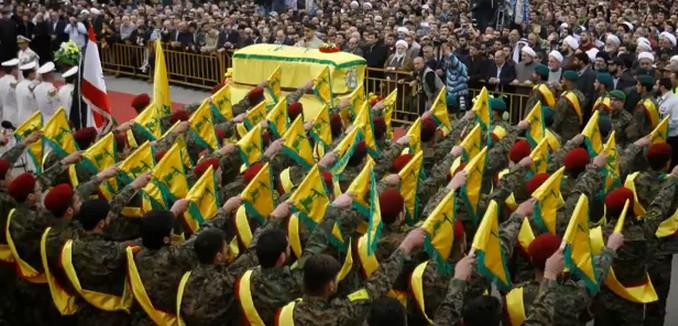The Lebanese terrorist group Hezbollah is attempting to acquire game-changing weapons in anticipation of launching another war against Israel, a former Israeli security chief told reporters on Monday.
Brig. Gen. (res.) Nitzan Nuriel, who served as the director of Israel’s Counter-Terrorism Bureau from 2007 to 2012, referenced three recent Israeli strikes against targets in Syria, including two over the weekend, which sought to prevent Hezbollah from acquiring new weapons systems and to deter “anyone who is trying to build up any potential capabilities along the Golan borders.”
These weapons include Scud-D warheads, which are “very heavy … and very accurate,” as well as air defense systems including the SA-8, SA-14 and SA-18. These systems would give Hezbollah “an umbrella of protection,” Nuriel said. The terrorist group is also looking for a chemical weapons system, which could be used tactically against Israel or as a deterrent.
In December, Israeli Defense Minister Avigdor Liberman suggested that Israel had destroyed a chemical weapons shipment en route to Hezbollah. A Syrian rebel group also claimed that the targeted shipment contained chemical weapons.
Regarding the Yakhont, an advanced missile that Hezbollah is said to possess, Nuriel said, “it’s our mission to make sure that when they want to use them, they won’t be able [to].”
He added that the regime of Syrian President Bashar al-Assad is not likely to launch a direct military attack from its border with Israel, as Syria’s “capabilities to respond are very very limited.” Hezbollah, Nuriel said, “was and still is number one in our list.”
“The third war between Israel and Hezbollah is only a question of time,” he observed, “but it’s not connected to what’s going in Syria today.”
While the terrorist group is still being heavily supported by Iran, it “has a lot of financial problems, and any type of new munitions that [they] move or try to move from Syria to Lebanon, most of the time [are] destroyed by us,” Nuriel added.
He rejected the assertion that Israel had picked the wrong approach to the conflict in Syria, noting that “we mostly respond and take the security measurements we need in order to protect ourselves.”
He also assessed the possibility of alternations with other players in Syria, including Russian forces supporting Assad, which he said would avoid a confrontation with Israel for economic reasons.
“Russian leaders – they know that any meeting between the Russian equipment and the Israeli equipment” would result in a dramatic blow to Russian arms sales, Nuriel explained. He pointed to one such interaction last week, “when Syria launched the SA-5 and the Israeli Arrow-2 intercepted it very easily. All those events sent a very simple message. The Russian equipment is dramatically less than the Israeli technology. If they want to keep selling that technology, they need to stay away from any clashes with us.”
In terms of the various jihadist groups positioned on Israel’s border with Syria, Nuriel observed that they are currently “very busy with themselves” and will not expend resources on attacking Israel in the short term, when they are still struggling to survive.
Speaking on Iran’s interests in Syria, Nuriel assessed that the Islamic Republic needs “the soil of Syria to be a Shiite soil,” which will give it a “bridge that connects Iran, Iraq, Syria, and Lebanon and Baghdad.” This would allow Tehran to threaten Sunni-majority Afghanistan and Pakistan to the east, and Saudi Arabia and the Gulf states to the west.
[Photo: Irina Rakhsha / YouTube ]




